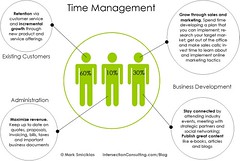 |
| Broken Window Fallacy (Photo credit: KAZVorpal) |
By Robert Pagliarini /
MoneyWatch/ December 13, 2012, 6:55 AM
Commentary:
| "Freakonomics", "Consider the Lobster", "Gary Benchley, Rock Star" and "Everything Bad is Good for You" (Photo credit: mudge) |
The broken window fallacy, as it is often called, was introduced by French economist Frederic Bastiat in 1850 in his essay, "That Which is Seen and That Which is Unseen." The parable is about a shopkeeper's boy who accidentally breaks a window at his father's store. A bystander commiserates with the shopkeeper, but explains that the broken window is actually a blessing because now the window replacement company gets to earn money replacing the pane.
As a result, the window repair man will make some money, and he may celebrate by stopping off at the local cafe and ordering a round of espressos for his crew for their good work fixing the shopkeeper's window. In other words, a solitary broken window has created a windfall for the community. People are working, money is exchanging hands and everyone benefits from the boy's carelessness.
This, as Bastiat alludes in his essay title, is what is "seen." It's also the point where most of us stop in our analysis. …
But what is not seen in this little town with the broken window? … What if the shopkeeper had planned on buying a new pair of shoes for his wife, but now because of the expense of fixing the broken window, he can't afford to? Who loses here? Well, the wife for one, but also the shoemaker. The money that would have been gone to the shoemaker now is being spent somewhere else. … The broken window helps the window repairman -- this is quite visible -- but the struggling shoemaker doesn't know what he lost.
Of course, nobody would be dumb enough to celebrate a broken window, would they? Sadly, yes. In wake of Hurricane Sandy (and every other natural disaster or calamity), experts sound off on TV and in newspapers about how the storm will be good for the economy. "Think about all the reconstruction and jobs this will create!" they gleefully chirp.
… And what's even more surprising is that even well respected Nobel Prize-winning economists get this wrong. In a New York Time's column written just a few days after the Sept. 11, 2001, terrorist attacks, Nobel laureate Paul Krugman wrote that "the terror attack could even do some economic good." It's deja vu all over again.
So what does the broken window fallacy have to do with you? … I'm guessing that there is a great deal of evolutionary value in paying full attention to what's immediately in front of us … and less benefit from contemplating what is not as obvious. But regardless of why we become blinded to the future, it can have devastating consequences in our lives.
Unintended consequences show up in all areas of our lives and especially when it comes to laws and politics. Says Yaron Brook, co-author of "Free Market Revolution: How Ayn Rand's Ideas Can End Big Government," "Policymakers seldom foresee the destructive consequences of their interventionist government policies because they seldom understand how markets work. If you're going to pass laws that affect the economy, you have a moral obligation to know economics."
… What decisions and behaviors do you engage in that are producing unintended consequences? Consider the ramifications of your actions that are unseen today, or maybe even a week, month or year from now, and that will ultimately affect your happiness, health and relationships.
Watch John Stossel debunk the broken window fallacy.
© 2012 CBS Interactive Inc.. All Rights Reserved.
Robert Pagliarini On Twitter »
View all articles by Robert Pagliarini on CBS MoneyWatch »
Robert Pagliarini is obsessed with inspiring others to create and empowering them to live life to the fullest by radically changing the way they invest their time and energy. He is the founder of Richer Life, a community of passionate people who want to learn and achieve more in life and at work. He is a Certified Financial Planner and the president of Pacifica Wealth Advisors, a boutique wealth management firm serving sudden wealth recipients and affluent individuals. He has appeared as a financial expert on 20/20, Good Morning America, Dr. Phil, Dr. Drew's Lifechangers and many others.













 Excerpted with permission of the publisher,
Excerpted with permission of the publisher, 









